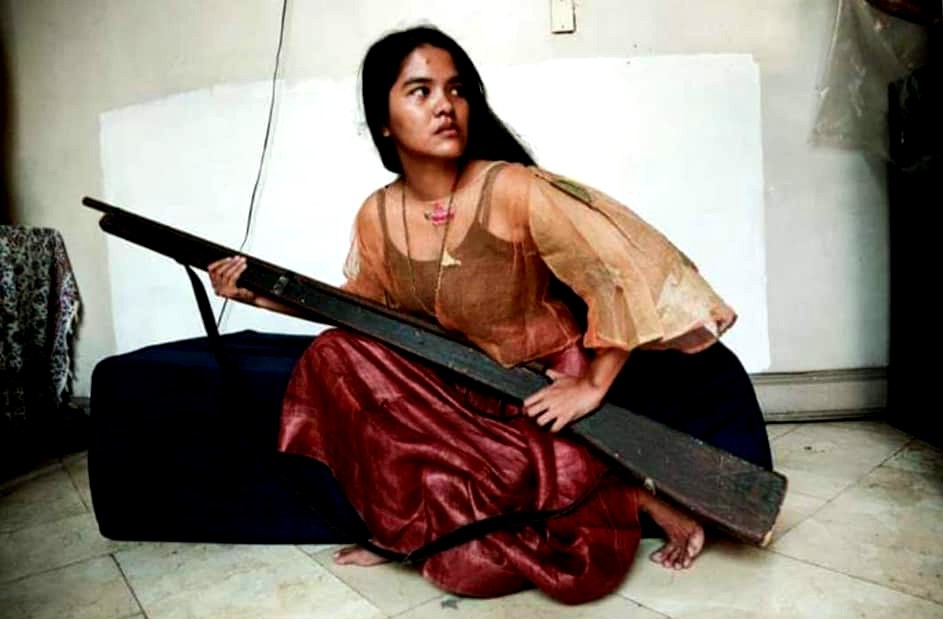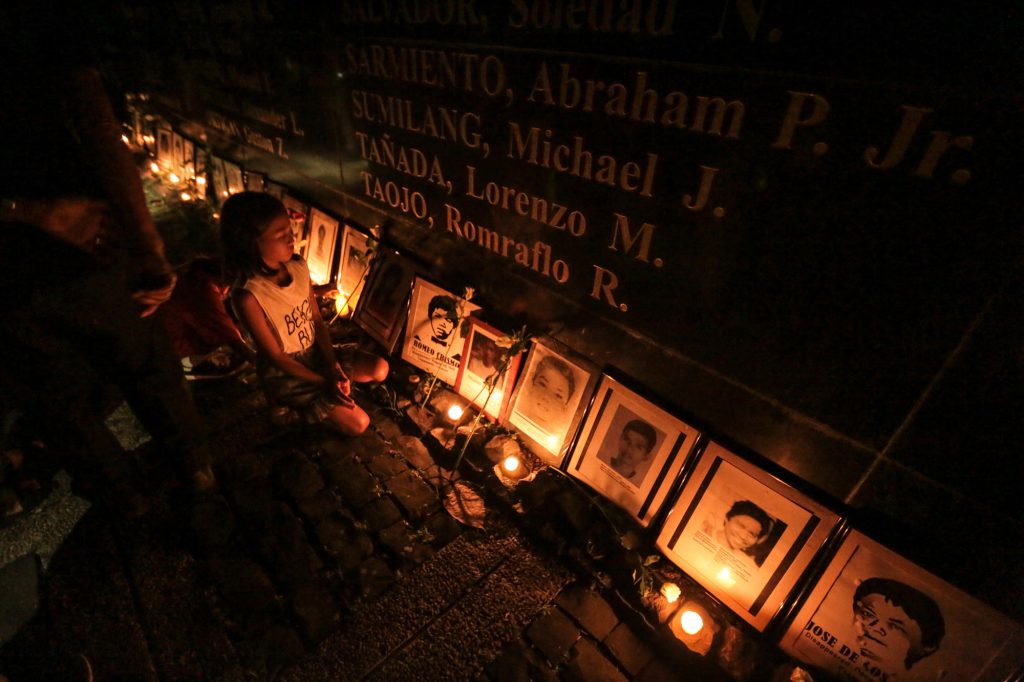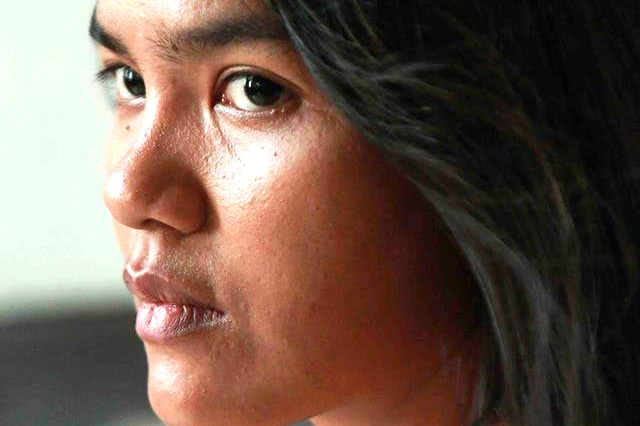While sitting out the slow but cautious wane of a humid afternoon on August 21, I came across a social media post by cultural writer, Pablo Tariman.
It was a quote from his daughter Kerima Lorena Tariman.
“The first time I went to the countryside to integrate with farmers, government troopers tried to show me first-hand how fascism, counter-insurgency and psychological warfare work. As if to make sure I don’t forget, they gave me a minor grenade shrapnel wound, and a major, lingering fear of any man with a golden wristwatch who’d seem to loiter in public places to watch me.” — Kerima Lorena Tariman, Ilagan, Isabela, 2001
I discovered late in the day that Kerima was killed by the Armed Forces’ 79th Infantry Battalion (IB) during an encounter in Silay City, Negros Occidental.
Kerima was a poet-rebel and died on August 20, on the eve of the anniversary of the assassination of former Sen. Benigno Aquino Jr.
At first, I paid little attention to the news of her death as I was in the middle of polishing a piece on the takeover of the Taliban in Kabul, Afghanistan. By ten in the evening, I packed up my stuff and called it a day.
Browsing my Facebook newsfeed one final time that night, I chanced upon a poem penned by Pablo Tariman about his daughter Kerima: “The Infant in my Mind”:
It’s hard to catch sleep / Thinking of the infant / In my mind. / But of course / She has outgrown / Her infant years.
She has ended / Forty-two years / Of a life / With her brand / Of heroism.
I think of her now / Lifeless on a cold cement / Waiting for her father and son / To claim her / And share / A last hug.
It brought me back to the tale of two Filipino poets killed during the dark days of martial law: Emman Lacaba and Maria Lorena Barros.
I was also reminded of the courage of an activist and student journalist, Liliosa Hilao, who was arrested by drunken soldiers of the martial law regime and was later tortured and killed.
But more than just the urge to reminisce history, I felt the clutch and weight of a grief the pain of which reminds me that no parent should outlive their children.
People often overlook, amid the shadow of boundless courage displayed by a revolutionary, the bravery of each and every member of his or her family.
Under such perilous conditions, the threat to one is often the treat to all. Much of what we admire in the lives of our bravest and brilliant martyrs we often fail to acknowledge, their loved ones especially, who likewise carry within themselves the same scourge which the children have decided to face.

How many times have I read and heard the heartbreaking tales of a mother or father, brother or sister, who faced untold fears and risks as their sons and daughters and siblings went toe to toe with hordes of fascist wolves.
As a parent myself, I can only imagine how grief-stricken Pablo and his wife Merlita must be in this crucial time of their lives. Nonetheless, Pablo Tariman said that he has prepared his heart for this very day.
“I am proud of my daughter,” Pablo Tariman was quoted by novelist Lualhati Baustista as saying. “I like the way she lived her life in poetry and commitment. I was ready for this death years back.”
Kerima, surely, takes from the mettle and spirit of her parents.
I can only imagine what it’s like to relinquish what creature comforts can offer in exchange for the chance to engage fascist forces in the hinterlands of armed resistance. I would assume the decision is nowhere near being easy.
Surrendering one’s former life for an ideal, or what author Salman Rushdie calls the “Imaginary Homeland,” free of the incumbrances brought about by cruelty and corruption, necessitates the turning of one’s back from the familiar warmth offered by loved ones, friends and colleagues.
The idea, too, that the rebel or dissenter might put the family’s life at risk must figure in the decision. This reality strains the choice even more, and puts the revolutionary at a conundrum: must he or she fight now, or must they wait it out?
The decision to take up the cause of the poor farmers and struggle for their survival taxes both the rebel and the family an immeasurable amount of courage. Which is why it’s unfair to hail the bravery of the revolutionary without acknowledging the same heroism in his or her loved ones who chose to let him or her do what conditions define as necessary.
Both fuel the other’s determination in a never-ending cycle of commitment and valor.

No greater truth can be had than what former US Pres. John F. Kennedy had said in 1962: “Those who make peaceful revolution impossible will make violent revolution inevitable.”
Judging by author Emma Goldman’s words that “People have only as much liberty as they have the intelligence to want and the courage to take,” it is safe to assume that humankind was born to love and revolt.
Love because Cuban revolutionary Che Guevara believed that true revolutionaries are guided by great feelings of love; and revolt because novelist Ursula K. le Guin said that one is either the revolution or not. One cannot simply buy, shape, plan, or make it happen.
We’ve witnessed the rise of anti-revolutionary forces that are out to discredit dissent and uprisings of any kind as a “terrorist” activity. The Anti-Terrorism Law is but one of several legislations out to give more teeth to what is already draconian and predatory in the Duterte regime.
Anti-revolutionary forces fail to realize that this country, the very country they choose to bludgeon and rape, rose and was born on the blood-soaked ashes of rebellion and the words of its most brilliant malcontents, poets, and storytellers. The memory of those days still run in the people’s veins.
As such, rebel, in all its subtle pursuits and thunderous honesty, is a designation all Filipinos must be proud of.
It’s only appropriate to end with the words of novelist Arundhati Roy:
Our strategy should be not only to confront empire, but to lay siege to it. To deprive it of oxygen. To shame it. To mock it. With our art, our music, our literature, our stubbornness, our joy, our brilliance, our sheer relentlessness – and our ability to tell our own stories. Stories that are different from the ones we’re being brainwashed to believe.
The corporate revolution will collapse if we refuse to buy what they are selling – their ideas, their version of history, their wars, their weapons, their notion of inevitability.
Remember this: We be many and they be few. They need us more than we need them.
Another world is not only possible, she is on her way. On a quiet day, I can hear her breathing.
And let me add that on that very spot where all our literature and poetry and music and joy and brilliance should fail, those proudly called to take the struggle by stepping into the line of fire must therefore boldly choose the inevitable.
As a young woman, Kerima Lorena Tariman chose the inevitable. At 42, she paid the ultimate price for her courage, her love for the poor, and her commitment. We owe her and the Tariman family our gratitude.
Joel Pablo Salud is an editor, journalist and the author of several books of fiction and political nonfiction. The views and opinions expressed in this article are those of the author and do not necessarily reflect the official editorial position of LiCAS.news.









